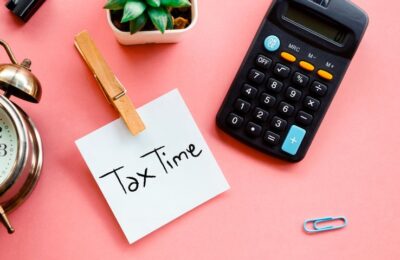The UK tax gap in 2022-23 was reportedly £5.5 billion – a figure that may be an underestimate. So there’s little surprise that the taxman is keen to gather as much uncollected cash as it can. A while ago, we reported how HMRC was targeting people with side hustles – income-generating activities outside a person’s main job. In addition, online platforms such as eBay and Vinted now have to share sales data with HMRC if a person sells 30+ items per year or earns more than about £1,700 in a year. Now, supposedly to celebrate Valentine’s Day 2025 (!), HMRC has launched a side hustle tax information campaign.
Who is HMRC targeting?
HMRC says the new campaign is targeting people who make extra income “from activities such as online content creation, dog walking, or making handcrafted items to sell.” It also says “anyone who has turned the love for their hobby into a side hustle is being encouraged to ‘put a ring on it’ and make it official.”
What are the side hustle tax rules?
The basic side hustle tax rule is that, if you earn £1,000 or more from it in a year, you need to pay tax on it. This means you’ll need to submit a Self-assessment Tax Return.
If you earn under £1,000 in a year from your side hustle, you don’t need to declare it or pay tax on it.
How does the side hustle tax campaign work?
The side hustle tax campaign is actually very helpful. It explains the tax rules for the following people, advising them whether they need to declare their income:
- Anyone making or buying things to sell (such as arts and crafts, beauty products, upcycled furniture etc)
- People with a side gig (like car repairs, gardening, tutoring or deliveries)
- Anyone working for themselves by doing multiple jobs
- Content creators or influencers
- People renting out property (from spare rooms through to whole properties)
What useful insights does the campaign provide?
The campaign provides readers with answers to some useful FAQs. Some of the ones that caught our attention are summarised below.
- Do I get a tax-free allowance for each different side hustle? This is a trap people often fall into. You only get a £1,000 tax-free allowance for income for all your side hustles combined. So, if you earn £800 from selling furniture and £500 from content creation on YouTube, you have a combined side hustle income of £1,300. Therefore you’d need to tell HMRC and pay tax on it.
- Do I pay tax if I occasionally sell unwanted items? No, you normally don’t. However, if you sell a single personal item or collection for over £6,000, you may have to report and pay Capital Gains Tax.
- What if I haven’t paid tax on side hustle income from previous years? In a nutshell, you need to do so or you risk fines and penalties. HMRC tells you how to declare and pay here. You could also ask one of THP’s accountants to speak to HMRC on your behalf.
- My main job is paid via PAYE – can I sort out my side hustle tax through that? No. It’s always your responsibility to tell HMRC about any extra taxable income.
I need to pay side hustle tax – what do I do?
If you only make a small amount of side hustle tax income, it’s simplest to submit a tax return and pay what you owe. However, if your income is steadily growing, it may be a good idea to use an accountant. At THP, we can not only complete your Self-assessment Tax Return, but we can also advise you on any legitimate ways to cut your tax bill. If you’d like to learn more, get in touch with our friendly team today.
About Karen Jones
Having worked for one of the world’s largest accountancy firms, Karen Jones uses her tax knowledge and skills to help clients obtain substantial reductions to their tax liabilities.
With an expanding portfolio of tax clients, Karen enjoys the variety her work brings her and particularly likes working with new businesses and people. With a growing number of tax clients, she frequently faces a variety of challenges and relishes the experience she gains as she solves them.
Karen likes the THP ethos: “I like the way the team has a professional, but friendly and down-to-earth approach – it creates a productive atmosphere that benefits everyone.”
Karen’s specialist skills:
- Personal Taxation
- Tax Efficient Planning
- Trust Administration












